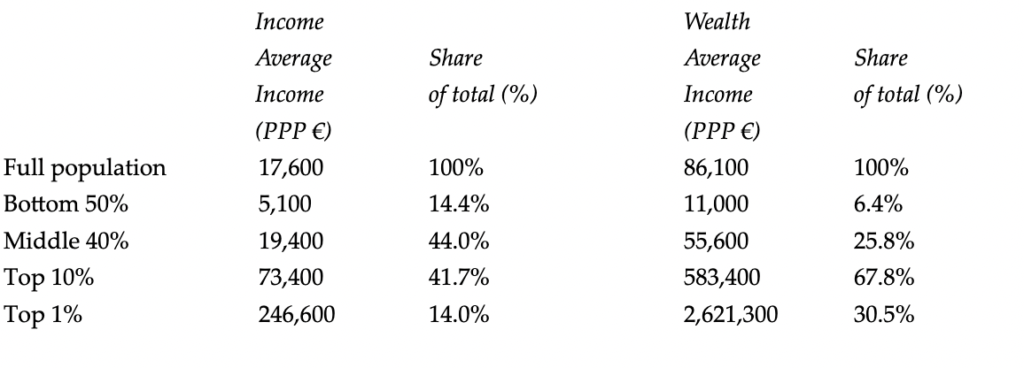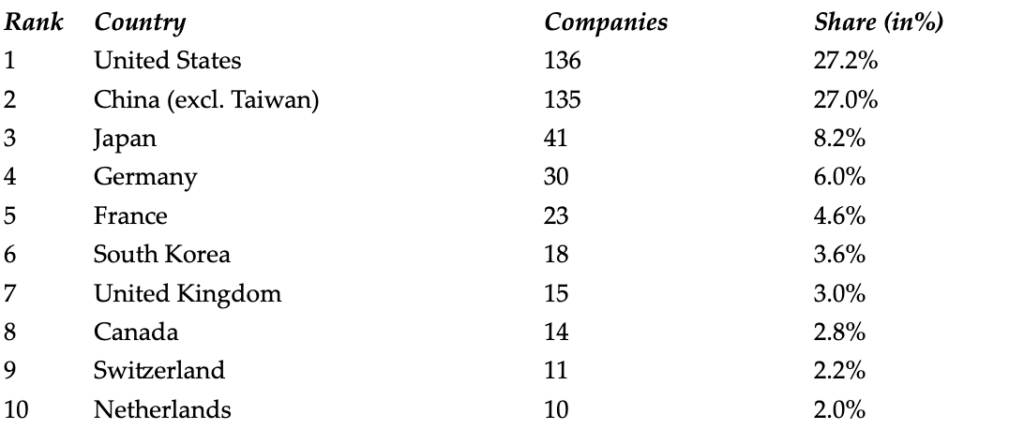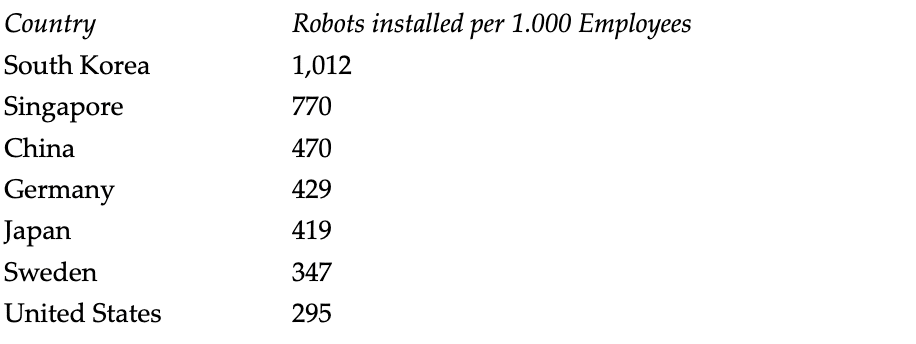Report shows China's growing clout at World Bank, global institutions

FILE PHOTO: The Chinese national flag is seen in Beijing, China
Andrea Shalal
Thu, November 18, 2021
WASHINGTON (Reuters) - With over $66 billion in total capital, China has passed Japan to become the second largest contributor to the system of development banks that provide some $200 billion in subsidized loans to poor countries each year, a new report said Thursday.
While China still receives loans and other aid from multilateral institutions like the World Bank and U.N. agencies, it has also emerged as one of the most powerful donors, according to the Center for Global Development.
It said that China, the world's second largest economy after the United States, is the fifth largest overall donor across the range of United Nations agencies focused on development, including the U.N. Development Program, World Food Program, and World Health Organization.
Beijing's role as a major donor, shareholder, aid recipient, and commercial partner of international institutions gives it "uniquely influential position," the think tank said, citing a detailed look at China's role at 76 global institutions.
"There’s been a lot of attention to China’s Belt and Road lending to developing countries, but a lot less on its growing footprint at global institutions like the World Bank," said Scott Morris, a senior fellow at the center.
China's expanding role at these institutions - and its role as the world's largest creditor - has raised concerns in the United States and elsewhere in recent years, but Morris cautioned against viewing its role at the banks as a threat.
"This isn't necessarily a cause for alarm," Morris said. "It’s better for everyone to have China working inside the system instead of outside of it."
Some of the increase has been driven by automatic contributions based on the size of China's growing economy. But Beijing has also scaled up its voluntary donations, including at the World Bank’s low-income lending arm, the International Development Association, where it is now the 6th largest donor.
(Reporting by Andrea Shalal; Editing by Mark Heinrich)

China’s State Capitalist Imperialism
Per-Åke Westerlund, ISA International Executive
China becoming the workshop of the world was the main driver of capitalist globalisation of the last decades. Multinational companies, particularly from the US, earned super profits and couldn’t care less about the dictatorship and conditions for workers in China. This was a win-win process for the ruling classes in both states — economic growth and low inflation assisted in hiding and softening the building up of contradictions.
This process could not go on forever and started to reverse. With similarities to German imperialism versus the British Empire up to WW1, US imperialism today is challenged by Beijing across all fields — economy, technology, finance, military and international relations. Imperialism “give[s] rise to a number of very acute, intense antagonisms, frictions and conflicts”, Lenin explained, and in his time this eventually led to war. Today, we have a Cold War.
Long-term imperialist confrontation
The record of US imperialism is crystal clear. Washington has never hesitated to use war and force to sustain its power. It is the mightiest military power the world has ever seen. The challenger, Chinese imperialism, is a brutal dictatorship against working people and any opposition. These two forces are now positioned for a long-term global imperialist confrontation. The Cold War will vary in intensity, contain new twists and alliances, but will not go away. This happens parallel with an escalating armaments race, record increases in military expenditure and arms exports.
Socialists and the working class must have an independent, revolutionary socialist position and organize struggle against all imperialist forces. No imperialist power, let alone military forces, will ever “liberate” the oppressed. US capitalist politicians that now suddenly condemn the dictatorship in China have turned a blind eye to it for decades — and still do the same to dictatorial regimes such as in Saudi Arabia. Neither can the fight against US imperialism in any way justify support for the regime in Beijing. However, there are certain “left” groups that supported US bombings in Libya in 2011 and others that label criticism of the Chinese dictatorship as supporting US imperialism.
There is no doubt who benefits from the regime in China today. It is an extremely unequal society with 878 dollar billionaires, an increase of 257 in 2020 and far more than the 649 billionaires in the US. In the same process, education, healthcare and housing are largely privatized and workers have no rights in the workplaces. Land grabbing by the authorities and environmental scandals and problems are frequent.
Real socialists are defined by supporting workers’ struggles everywhere. Workers in China fighting for their rights meet severe repression from the regime, including abductions, torture and prison. The state machine of oppression is enormous — millions are employed in the police, military, intelligence agencies and the enormous surveillance apparatus. This system works in cooperation with private and state Chinese companies — but also US and Western companies in the country. Capitalists and governments internationally fear revolutionary movements in whatever country — they sometimes hypocritically give support in order to derail these struggles and hug them to death.
International Socialist Alternative stands for solidarity and support to workers’ struggle in China, Hong Kong and internationally. Any struggle on working conditions, jobs, wages, the environment, education and other important fields immediately becomes a struggle against the CCP (Chinese Communist Party) dictatorship in Beijing. Eventually brutal state repression will be used also against local grievances or protests. Therefore, democratic demands — the right to protest, to organize trade unions, freedom of the internet and media — are central in any struggle in China and Hong Kong, and intimately linked to the fight for improved living conditions and environment. Democratic demands become revolutionary since they are a threat to the regime and can only be achieved by revolutionary mass struggle of the working class.
Socialists must be prepared for the confrontation between US imperialism and Chinese imperialism. Real working class internationalism means solidarity and struggle against the global capitalist and imperialist system, for workers and the oppressed to take power.
What is imperialism?
The classic Marxist analysis is Lenin’s Imperialism, the Highest stage of Capitalism, written in 1916. In order to understand and explain the new phase, he analyses global capitalism, not only one or two countries, and the processes over a longer period. This is what Marxists today call perspectives. Imperialism develops with concentration of capital. Growing giant companies become monopolies, “a general and fundamental law of the present stage of development of capitalism”. Linking up with and controlled by banks, this means finance capital comes to power. It is capitalism in decay and parasitic: “the bulk of the profits go to the ‘geniuses’ of financial manipulation”. There is no longer any “border” between speculative and productive capital.
All the features of imperialism described by Lenin have existed for decades in China. The economy is producing for a mass market, in China and globally, but appropriation of profits is private, to both foreign and Chinese capitalists. A few monopolies dominate in all spheres of the economy — finance, energy, internet etc., and in China with state-capitalist characteristics. Lenin in Imperialism stressed how the major companies in Germany and elsewhere had a “personal link-up” to banks and to the government. This was also the case with confiscation and speculation in land, an issue that has led to many protests in China.
Private companies and powerful capitalists in China are working hand-in-hand with the CCP state dictatorship. Top billionaires are members of the CCP and government ministers, generals and party leaders are richer than any other governments globally. Lenin’s concept of “Plutocracy and Bureaucracy” — the super-rich and the state — has reached perfection in China in the shape of state capitalism. However, as in all capitalist societies, this in no way creates stability, but piles up contradictions and prepares new crises.
No super-imperialism
Lenin argued strongly against the theory of Karl Kautsky, that imperialism would merge into one union, ”ultra-imperialism”. That theory implied that wars and conflicts would cease, while financial exploitation would continue. This was an argument contrary to Marxism, which defines the bourgeoisie as national capitalist classes, unable to overcome their national interests. Further, the theory of super-imperialism fostered illusions in a peaceful development of imperialism. It was Lassalle’s theory of the bourgeoisie as “one gray mass”, instead of understanding its inner conflicts and splits, set on a global stage.
Lenin argued “an essential feature of imperialism is the rivalry between several great powers in the striving for hegemony, i.e., for the conquest of territory, not so much directly for themselves as to weaken the adversary and undermine his hegemony”. Modern imperialism meant “the competition between several imperialisms”. US imperialism was the leader of the capitalist bloc following WW2, in a Cold War against primarily the Soviet Union, but also China. The latter two were non-capitalist bureaucratically planned economies ruled dictatorially by “communist” parties that were not actual parties, but the state apparatus. When Stalinism collapsed in the Soviet Union and capitalism was re-established in China, US imperialism seemed to remain as the only superpower.
However, the relationship of forces between the powers will change over time, mainly based on economic strength. The growth of China’s economy relative to the US, and the development of Asia as the main arena for economic growth, meant a gradual shift and challenge. In a sense, it became like the challenge from German capitalism against the British from the 1870s onwards. In key production fields such as steel, Germany went from half the British production level to produce twice as much. Based on the experience of WW1, Lenin asked, “what other solution of the contradictions can be found under capitalism than that of force?” Today, despite both the US and China being capitalist, there is a Cold War. What is holding back a hot war is the existence of nuclear weapons that could destroy the entire globe. As important is the opposition to war from a big majority of the population.
Military incidents and proxy wars such as in Syria are possible, but a full-scale war between the US and China is not on the table for now. The Cold War will continue, and contrary to many predictions, the ruling classes on both sides are likely to lose ground as a result. Initial support for nationalism will be countered by the cost of the conflict and grave internal political, economic, environmental and social crises in both countries and blocs.
Divide the world
In Lenin’s definition of imperialism the development of monopolies and the role of finance capital is linked to globalization: export of capital, the development of multinational and transnational companies and “the territorial division of the whole world among the biggest capitalist powers”. In a few decades in the end of the 1800s, the main imperialist powers divided the world between them. Lenin describes “two or three powerful world plunderers armed to the teeth”. This was a result of an “enormous ‘surplus of capital’… in the advanced countries”. It was forced upon the capitalists as a result of concentration of capital and monopoly. This led to a scramble for resources and markets, for profits and power, in less developed countries where ”the price of land is relatively low, wages are low, raw materials are cheap”. It was also a “struggle for spheres of influence”.
In the 1800s, the British Empire was the top producer for the global market. Its technological superiority in producing textiles, machinery, etc., meant ruin for local small-scale production in other countries, for example in Latin America. Although Lenin described the process as a final partitioning of the globe, he also stressed “repartitions are possible and inevitable”. This of course has been proved again and again since then, not least in the two imperialist world wars. The 1900s also saw US imperialism becoming the dominant imperialist power, pushing other imperialist powers into the back seat.
For a relatively long period, US imperialism accepted China’s economic growth, as Beijing seemed prepared to continue as a kind of subcontractor. However, since Xi Jinping came to power, with the Chinese economy on course to become the biggest in the world, several processes have altered the balance between the two powers. The Chinese state capitalist model looked to be less damaged by the global crisis of 2008–09 and the regime took some bold steps. “Made in China 2025”, released in 2015, targeted Chinese leadership in fields of technology and to become less dependent on the West and the US.
The Belt and Road Initiative (BRI) is a giant network of agreements between China and governments in more than 100 countries on every continent. Its launch signified that China was following the general law of capital outgrowing national boundaries. BRI’s roads, railways, harbors, airports, pipelines etc will connect the participating states to the Chinese economy via trade, loans and debts. BRI gives China access to infrastructure, energy sources and land. BRI will increase the use of Chinese technology in participating countries. China’s annual foreign direct investment quadrupled from 2009 to 2016, reaching close to 200 billion dollars. In total, FDI outflow from China 2005–2020 was almost 2.1 trillion dollars. A third of this was investments in energy resources.
Railways
In Imperialism, Lenin wrote:
“The building of railways seems to be a simple, natural, democratic, cultural and civilizing enterprise; that is what it is in the opinion of the bourgeois professors who are paid to depict capitalist slavery in bright colors, and in the opinion of petty-bourgeois philistines. But as a matter of fact the capitalist threads, which in thousands of different intercrossings bind these enterprises with private property in the means of production in general, have converted this railway construction into an instrument for oppressing a thousand million people (in the colonies and semi colonies), that is, more than half the population of the globe that inhabits the dependent countries, as well as the wage-slaves of capital in the ‘civilized’ countries.
“Two hundred thousand kilometers of new railways in the colonies and in the other countries of Asia and America represent a capital of more than 40,000 million marks newly invested on particularly advantageous terms, with special guarantees of a good return and with profitable orders for steel works, etc., etc.”
34 countries have signed contracts with Chinese companies for construction of new railways in the last ten years. They include China-Laos, Addis Ababa-Djibouti, Mombasa-Nairobi, Lagos-Ibadan, and many other spectacular railways. They are built by the main Chinese railway construction companies, financed by loans from China and also using a high number of Chinese workers and technicians. In total, railway projects worth 61.6 billion dollars were signed between governments and Chinese companies in 2013–2019. Infrastructure projects are not charities, but built to more efficiently transport both imports and exports, giving access to oil, mineral and other natural resources, and building a political link between the CCP regime in China and governments around the world.
Debts
Already in 1916, Lenin also pointed out that finance capital took a strong grip on countries in need. “Numerous foreign countries, from Spain to the Balkan states, from Russia to Argentina, Brazil and China, are openly or secretly coming into the big money market with demands, sometimes very persistent, for loans.” In addition, he showed how loans were linked to export demands: “The most usual thing is to stipulate that part of the loan granted shall be spent on purchases in the creditor country, particularly on orders for war materials, or for ships, etc.”
In the 2000’s, China became the main creditor and exporter of capital. A study by the economists Sebastian Horn, Carmen M. Reinhart, and Christoph Trebesch (Harvard Business Review, February 2020) found that “the Chinese state and its subsidiaries have lent about $1.5 trillion in direct loans and trade credits to more than 150 countries around the globe. This has turned China into the world’s largest official creditor — surpassing traditional, official lenders such as the World Bank, the IMF, or all OECD creditor governments combined.”
Most of the loans are connected to infrastructure and natural resources investments by the Chinese state and Chinese companies. The result is extreme dependence on China by the debtor countries. Most of the loans are based on commercial conditions; only less than five percent are interest free.
“For the 50 main developing country recipients, we estimate that the average stock of debt owed to China has increased from less than 1% of debtor country GDP in 2005 to more than 15% in 2017. A dozen of these countries owe debt of at least 20% of their nominal GDP to China (Djibouti, Tonga, Maldives, the Republic of the Congo, Kyrgyzstan, Cambodia, Niger, Laos, Zambia, Samoa, Vanuatu, and Mongolia).” (Horn, Reinhart and Trebesch).
The investigation of lending by China, up to 2017, underlines its major role in global finance capital. ”When adding portfolio debts (including the $1 trillion of U.S. Treasury debt purchased by China’s central bank) and trade credits (to buy goods and services), the Chinese government’s aggregate claims to the rest of the world exceed $5 trillion in total. In other words, countries worldwide owed more than 6% of world GDP in debt to China as of 2017.” (Horn, Reinhart and Trebesch).
In November 2020, Zambia became the first country during the pandemic to default on its debt payments. Of its 11.2 billion dollar debt, 3 billion is to China, but in reality what is owed to China is much more. The Chinese regime has been particularly interested in the country that is Africa’s second largest copper producer. During the pandemic, Beijing has also promised loans to cover purchase of Chinese vaccines, for example 500 million dollars to Sri Lanka.
The purpose of Chinese loans and connections to governments and presidents is not to improve the lives of the poor masses in these countries. On the contrary, payments on debts take an increasing share of public expenditure, working conditions worsen with increased exploitation and poverty increases as it does now in Zambia. Many regimes in the Belt and Road Initiative are authoritarian, constantly attacking democratic rights. The Chinese regime and system is an integral part of the global capitalist system.








